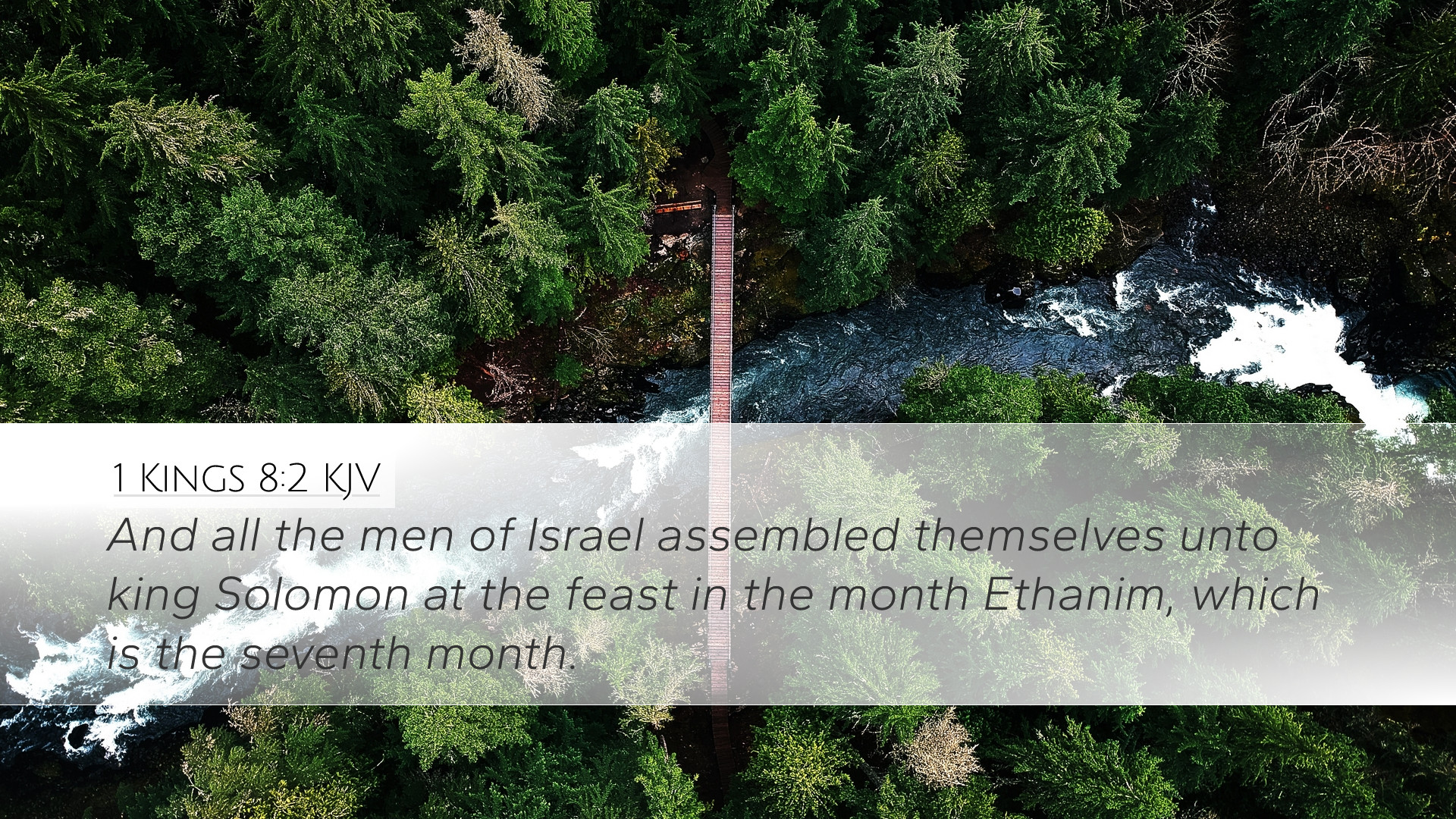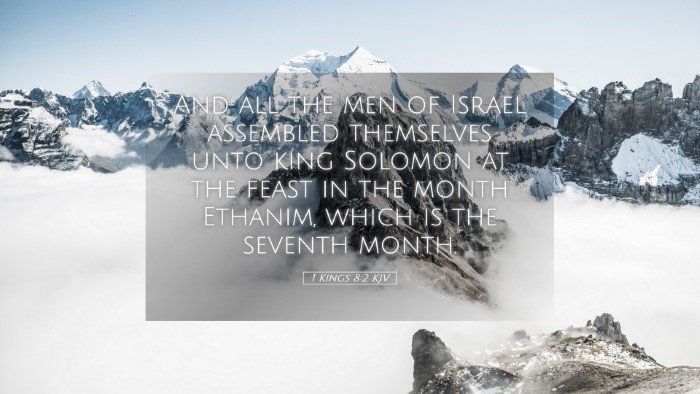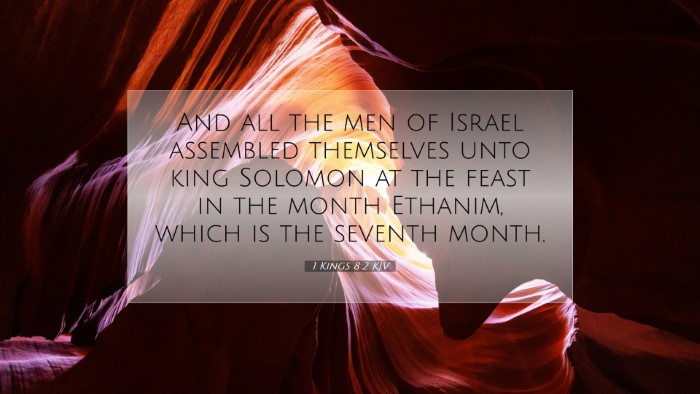Commentary on 1 Kings 8:2
1 Kings 8:2 states, "And all the men of Israel assembled themselves unto king Solomon at the feast in the month Ethanim, which is the seventh month." This verse marks the significant occasion of the assembly of Israel to witness the dedication of the temple. The implications of this gathering, the timing, and the significance of the month Ethanim, as well as the role of Solomon, are crucial for understanding this pivotal moment in Israel's history.
Contextual Background
Before delving deeper into the commentary on this verse, it is essential to grasp the historical and cultural context. Solomon’s reign signified a high point in Israel’s history. David, his father, had unified the tribes and firmly established Jerusalem as the capital. Now, Solomon was to fulfill David's dream of building a temple for the Lord, establishing a central place for worship.
Significance of the Assembly
This assembly was not merely a religious obligation but also served as a national unifying event. The presence of all the men of Israel indicates:
- Unity: The gathering foreshadows a collective commitment to the covenant relationship with God.
- Leadership: Solomon’s role as king is reinforced as he leads the nation in this significant spiritual undertaking.
- Participation: The involvement of the populace underscores the importance of worship and communal identity in Israel’s faith.
The Feast in the Month Ethanim
The reference to the feast during the month Ethanim (also known as Tishri) is quite meaningful:
- Cultic Significance: Ethanim corresponds to the time of the Feast of Tabernacles (Sukkot), a festival celebrating the harvest and also commemorating the Israelites' time in the wilderness. It symbolizes reliance on God’s provision.
- Season of Reflection: This time is marked by reflection and gratitude, aligning perfectly with the dedication of the temple as the dwelling place of God among His people.
- Historical Recall: The event recalls Israel’s historical journey—God’s faithfulness throughout their struggles to finally have a permanent place of worship.
Theological Implications
From a theological perspective, this verse serves as a window into God’s desire for a relationship with His people. The gathering in Jerusalem at this festival represents the pinnacle of communal worship:
- Divine Presence: The temple symbolizes God’s desire to dwell among His people, which reflects His continual engagement in human affairs.
- Empowerment through Worship: The act of coming together for worship encourages solidarity and communal strength that is vital for both individual and corporate faith.
- Covenantal Responsibility: The assembly is a reminder of the responsibilities upheld in the covenant—both in worship and in ethics as a nation set apart.
Insights from Public Domain Commentaries
Matthew Henry's Commentary
Matthew Henry emphasizes the collective nature of worship in this verse. He notes that the assembly signifies the people's allegiance to God through Solomon’s leadership. The fact that they came to the feast implies their recognition of the significance of dedicated worship and their desire to rekindle their relationship with God as they transition from the old covenant experiences into a more profound realization of God's presence through the temple.
Albert Barnes' Commentary
Albert Barnes reflects on the socio-political aspects of the gathering. He posits that this celebration was an essential demonstration of national unity and reverence towards God, crucial for Solomon’s kingship. Barnes further explores the implications of the faithful observance of festivals in Israelite culture, underscoring that such gatherings would reinforce the community’s faith and their identity as God’s chosen people.
Adam Clarke's Commentary
Adam Clarke presents a detailed view on the festival’s significance, stating that the month of Ethanim heralds the completion of the harvest and is a fitting time to dedicate the temple—an act establishing a new era of worship in Israel. Clarke emphasizes the importance of Israel’s response to God, as seen in their coming together to worship, showcasing a model for contemporary gatherings to seek unity in Christ.
Conclusion
The assembly in 1 Kings 8:2 serves as a crucial moment that encapsulates the essence of God’s relationship with Israel. The gathering reflects the integral role of worship in maintaining a communal identity while celebrating God’s presence in their midst. For pastors, students, theologians, and Bible scholars, understanding this verse calls for an appreciation of how corporate worship can unite the community under God’s covenant and empower them to fulfill their divine mission. As we contemplate this event, we are reminded of the importance of dedication, unity, and reverence in our current religious practices.


